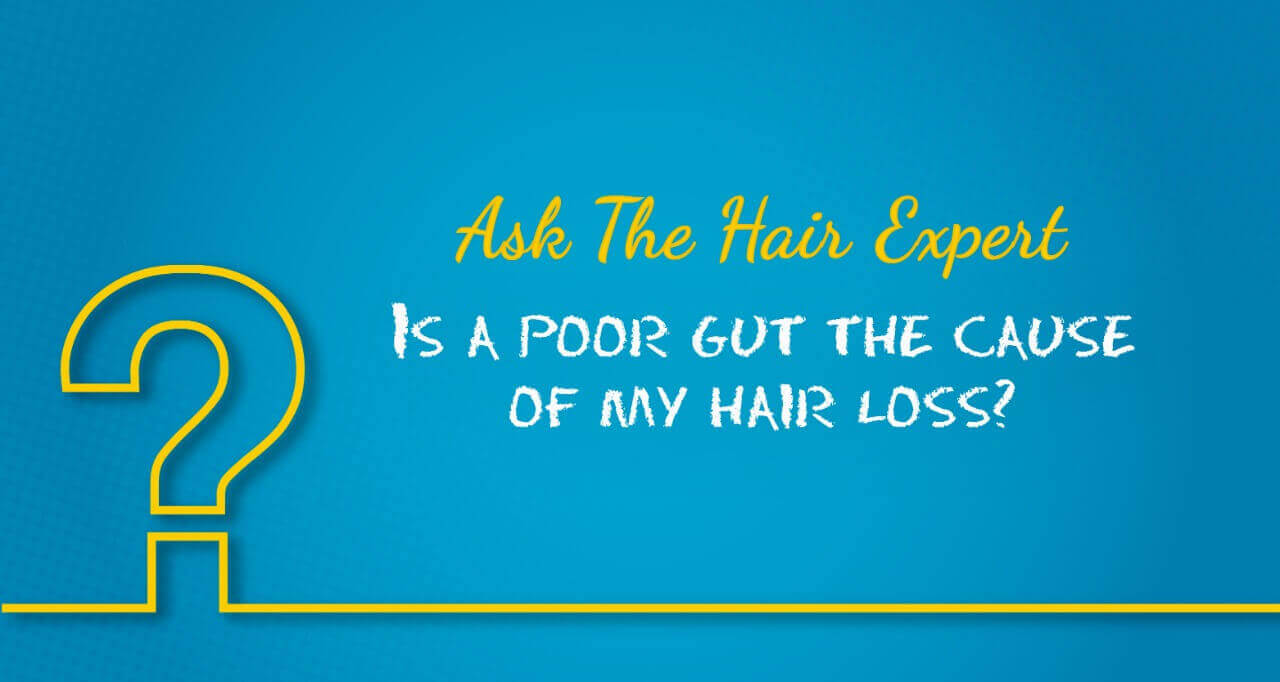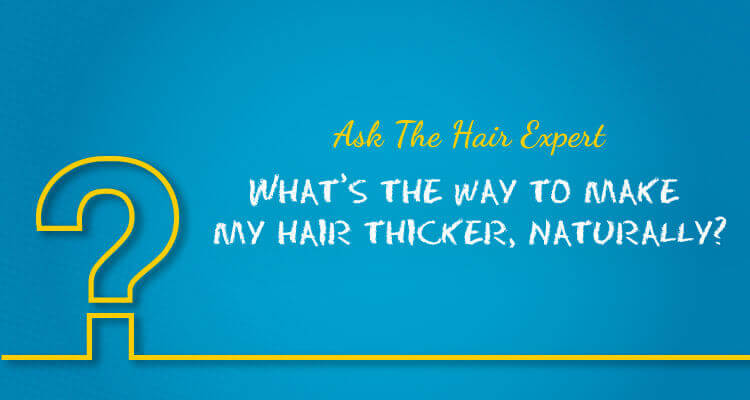Vitamin D – The ‘sunshine vitamin’ that every second person seems to be deficient of these days!
Isn’t it fascinating that so many of us are not good on the Vitamin D scale as we should be, considering we live in a classified hot-tropical country with more-than-enough sunshine?
But it’s not just the sun-exposure, much has to do with our diets and also certain other conditions that can trigger an anomaly.
Thanks to the widespread issue of Vit D deficiency, we have a lot of queries coming our way on its relation to hair loss, over social media and at our clinics. Hence today, on our ‘Ask the Hair Expert’ series, we will discuss the impact of this particular nutrient on your hair.
You asked: “Is my hair falling ‘cos of vitamin D deficiency? Can a low Vit D cause alopecia? Is it treatable?”
Here’s the answer from the Hair Experts.
Yes. A dip in your Vit D levels CAN impact your hair and cause hair loss concerns.
However, it is important to understand whether this deficiency is the sole reason for your hair loss or only an aggravating factor. A trip to your Trichologist’s clinic can help you decipher this and treat it as required.
Meantime here, we will help you understand the role of vitamins in general, and vitamin D in particular, for your hair’s health.
Why do we need Vitamins?
Vitamins are essential nutrients needed by our body to perform a variety of functions. Our body cannot produce it as needed, and we source it externally. Sun exposure helps our skin to synthesize it. Synthesis of Vitamin D takes place in the epidermal keratinocytes. This happens under the influence of ultraviolet (UV)-B light. or obtained from diet or dietary supplements. While this is the primary source, it can also be obtained from diet or dietary supplements.
Vitamins are crucial for good hair growth and overall hair health. They are essentially classified as fat-soluble and water-soluble vitamins. The difference between the two lies in how our body absorbs them and how each vitamin acts within our body.
Hair Growth Vitamins, as we call them, help with controlling hair loss and help with the overall thickness of the hair. This apart, vitamins help in hydrating the hair shaft, thereby preventing split-ends.
Different vitamins have different roles to play in our body, and they are needed in different quantities. The sources vary for each. Do read our blog on the topic for further insights.
What does Vitamin D do?
Vitamin D, the chemical names of it being ergocalciferol or cholecalciferol, is a fat-soluble vitamin. It helps our body with some key functions including calcium and bone metabolism, helping absorb the calcium needed to strengthen bones. It helps us have a healthy brain, teeth, lungs, skin and hair. It helps keep our immune system strong and even helps balance insulin levels.
It is notable that Vit D, indirectly or directly, regulates about 3% of the human genome. Vit D has the power to stimulate cell growth.
Vitamin D helps maintain a proper balance of minerals such as calcium and phosphate in your body. These are essential for the formation of bones and teeth. It also is crucial for the absorption of these minerals from the intestines into the bloodstream.
This apart it has been discovered that it is associated very closely to many physiological factors such as the immune regulation, protection against radiation, infections and even oxidative stress! It also helps in treating skin conditions like psoriasis.
What does Vit D do for your hair?
Vitamin D plays a big role in the development of hair follicles. It is a hair follicle differentiation promoter. It helps with strengthening follicles, promoting hair growth, and also plays a significant role in ensuring a normal hair growth cycle – helping the cellular turnover – the constant division of cells in the hair follicle bulb. It further helps build an immune defence mechanism as well.
What happens when you don’t get enough Vit D?
There have been extensive studies done on Vitamin D levels and how a dip can impact us. Low levels of Vit D have been linked to diabetes, muscle disorders, high blood pressure, multiple sclerosis and even certain types of cancer. Bone softening, low bone density, osteoarthritis and heart disease are also linked to Vit D deficiency.
Insufficient Vit D levels occur when you do not have sufficient sun exposure and when your diet doesn’t give you the needed inputs.
Here are some of the tell-tale symptoms of Vit D deficiency:
- Fatigue, lethargy, low-energy
- Decreased endurance
- Bone, joint, muscle pain
- Mood swings, irritability
- Anxiety, depression
- Frequent illness
- Frequent fractures
- Loss of bone density
- Very slow recovery when wounded
- High blood pressure
- Infertility
- Weight gain
- Hair loss
Vitamin D deficiency in kids can lead to Rickets, which is a serious bone problem causing bowed legs. In adults, it can lead to concerns such as osteoporosis or osteopenia (soft bones). A low Vit D count is also associated with conditions such as asthma, eczema and tendency to some allergies.
What causes Vit D deficiency?
Lack of sun exposure and inadequate dietary nutrition typically causes deficiency. Some people also end up with low Vit D levels due to certain underlying conditions such as Crohn’s disease or Celiac disease, which hinders with the absorption of nutrients by the body. There are also certain medications that lead to a low Vit D count – antifungals, glucocorticoids, medications for HIV and anticonvulsants to name some.
Does such deficiency affect hair?
Yes it does, as noted above. Vitamin D deficiency has been linked to hair loss.
Also, those who have hereditary Vitamin D receptor (VDR) deficiency (VDR gene is what helps your body respond to the Vit D you get from diet or sun exposure) or have a VDR mutation concern, have been observed to suffer from alopecia.
Alopecia Areata is a very common form of hair loss in all genders. Also known as spot baldness, it is a skin condition that’s characterised by hair loss. It causes distinctive bald patches and causes loss of hair from scalp, face, and even other parts of the body. It is an autoimmune disorder wherein the body’s own defence system attacks some cells causing hair loss.
This condition is always seen in association with stress or viral infections or immunization. However, studies have also shown that most men & women who experience alopecia or diffuse hair loss, have low Vit D levels i.e. serum25-hydroxyvitamin D levels less than 30, irrespective of age and sex. It was also observed that such parties also have higher levels of C reactive proteins, one of the markers of autoimmunity.
Diffuse hair loss is again something that is so common, which we discuss often. This happens mainly when the hair growth cycle is disturbed. The underlying condition could be varied, one of which is Vit D deficiency.
While we have spoken of issues arising from deficiency, there have also been studies that have shown that those who have higher levels of the vitamin may be affected by Telogen Effluvium. There is no conclusive data available on this, but there have been relevant discussions.
Do read our blogs on hair loss, to understand the possible concerns better.
What can help restore the Vit D levels in your body and recover from the related hair loss?
If you suspect that your hair loss is caused due to such deficiency, you should consult a professional, get those supplements prescribed along with dietary changes, and spend more time outdoors in the sun to help combat the deficiency!
Here are some great resources of Vit D:
- Milk and milk products
- Mushrooms
- Soy milk
- Almond milk
- Tofu
- Oranges
- Avocados
- Chia Seeds
- Legumes, Nuts & Seeds
- Fortified foods such as Vit D enriched cereals, yoghurts and juices.
Depending on how much of a deficiency you have, your medical background otherwise and the kind of hair loss you are facing, you will need medical advice to restore good hair and health.
How can a Trichologist help with your diet?
It is key that any diet that you follow is something that is specifically designed for you…works for you, your needs, your lifestyle and daily routines. And when it comes to your hair, then even more so. Your diet should take into account your hair & scalp condition and your medical condition or history.
A trichologist will examine your hair & scalp, understand your existing diet plan, study your medical history, and clearly diagnose whether there is a deficiency. He/She will accordingly prescribe a change in diet or food supplements, where need be. Supplements will also help maintain healthy hair while counteracting the impact that various external and internal factors have on your hair and scalp. If your hair and scalp require any specific tricho treatment, you will be guided on that as well. Thus, you will address your hair concerns in a holistic manner, internally and externally.
Vitamin D basically affects many aspects of a person’s health, including hair health. It can trigger or worsen a hair problem. It is important to hence have a clear diagnosis and tackle the problem with scientific solutions.
Let us remind you that one solution never fits all, especially in the case of hair problems! Multiple factors such as your lifestyle, occupation, geographical location, metabolism tendencies, nutrition balance, medical case history & more, impact your hair. Decipher what your hair needs with the help of a hair expert and stay clear of concerns. Don’t hesitate to seek professional advice.
And with that, we sign off today! For more on hair & scalp concerns, and for all things ‘Hair’, do follow our blogs on hair loss, hair care, treatments & solutions, and interesting hair trivia!
Connect with us on social media on the links below. Do leave your questions & comments and we will address them all, just as we have done today!



